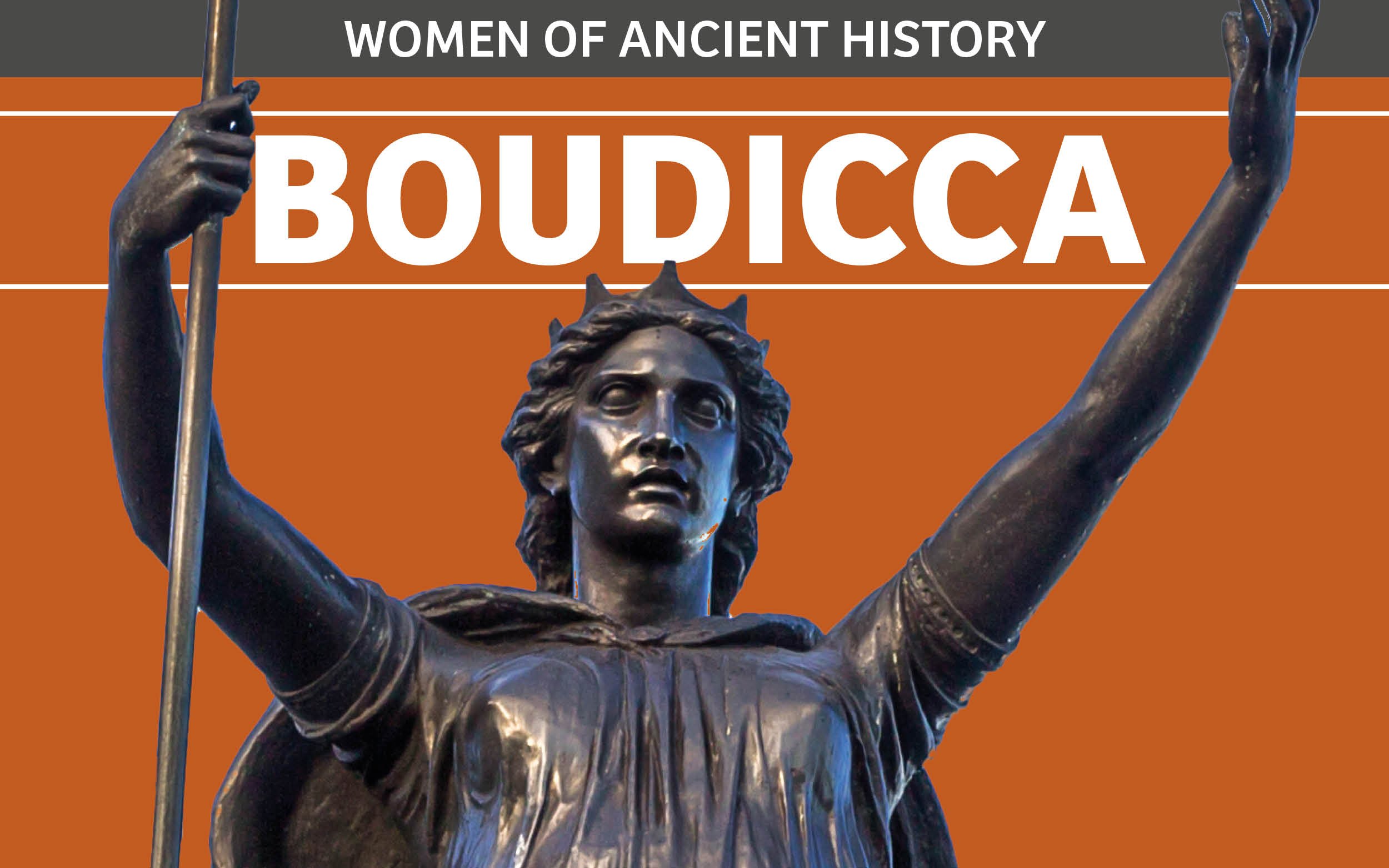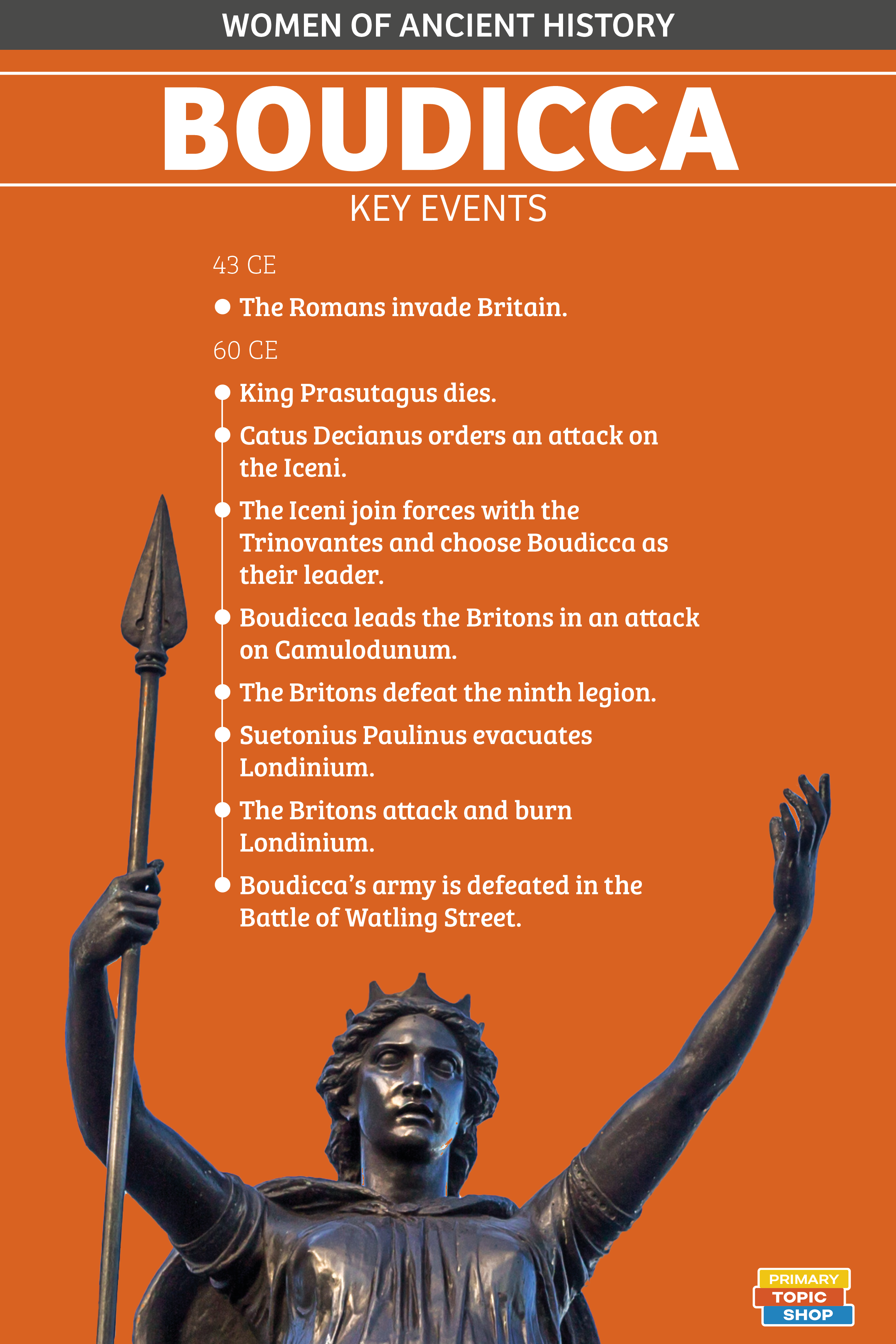The Woman Who Defied an Empire
Adobe Stock Image
Did you know it was a woman who led the biggest rebellion against the Roman occupation of Britain?
Boudicca was the wife of Prasutagus, the king of the Iceni tribe in East Anglia, a place in England near what is now called Norfolk. Prasutagus had named his wife a co-heir of his kingdom, along with the Roman emperor, hoping to appease the emperor, but when he died in 60 AD, the Romans didn’t recognise Boudicca as Queen of the Iceni.
A Roman official named Catus Decianus saw his chance to capitalise on the king’s death. He and his Roman soldiers attacked the Iceni, took Boudicca’s land and plundered her household. To add insult to injury, he then beat Boudicca and her two daughters in front of her people.
Big mistake.
Huge.
It’s possible the Romans weren’t used to Celtic women. After all, Roman daughters weren’t even given their own names, just a version of their father’s name plus a number. However, Boudicca was a fighter. Instead of accepting diminished status and humiliation from Catus Decianus, she rallied the other wronged Celtic chiefs and gathered an army.
They marched towards Londinuim (London), unleashing their rage on anyone in their path. The trail of bodies, blood and burnt cities soon sent the message that Boudicca was just as ruthless a leader as any man, if not more so. Like a beast feeding Roman bodies and the rage of oppressed indigenous people, Boudicca’s army grew until it was 180,000 strong.
In response, the Romans sent the ninth legion to deal with Boudica, a force of 2,500 highly trained soldiers that would make most generals quake with fear. Boudicca had good intel, though, and she was on home turf. She and her best warriors ambushed the legion from the woods, cutting the elite soldiers to pieces in a decisive victory.
This was not a mere setback for the Romans. The fact that it was a woman who had beaten them was embarrassing.
Do you think I’m exaggerating? Don’t take my word for it. This is what Roman historian Cornelius Tacitus had to say:
Two cities were sacked, eighty thousand of the Romans and of their allies perished, and the island was lost to Rome. Moreover, all this ruin was brought upon the Romans by a woman, a fact which in itself caused them the greatest shame.
I mean, what if women back home heard about this? What if they demanded individual names? My goodness, the paperwork.
As Boudicca resumed her march of terror, our friend Catus Decianus abandoned Londinium to cower in France. Possibly the smartest move he’d ever made because if she’d captured him, it would not have been pretty.
With Londinium on the brink of invasion, It was time for the Romans to bring out the big guns, namely Suetonius Paulinus, the governor of Britannia, and his legions who had been fighting in Wales.
Paulinus arrived in Londinium and saw the poor state of the city’s defences while hearing tales of the Celtic woman bent on revenge, killing her way across Britain. He quickly realised he had no hope of defending the city and got the heck out of Dodge. The people of Londinium followed, at least those fit and able enough to escape in time. The Britons killed the rest, and Londinium was burned to the ground.
If Paulinus had kept running back to Rome, Britain would look very different today, but he had a plan. He sent for reinforcements, strategically placed his legions on Watling Street along the rebel army’s path of destruction, and waited. Once he had the Britons where he wanted them, they attacked. The Britons outnumbered the Romans by four or five times, yet they were overwhelmingly defeated.
Boudicca’s rebellion was the last of that scale in the Roman occupation of Great Britain, which lasted another 350 years.
Today, Boudicca is an icon of British folk history.
I researched Boudicca, and other powerful women when I created the Women of Ancient History teaching resources. I’ve included the link to a couple below:




